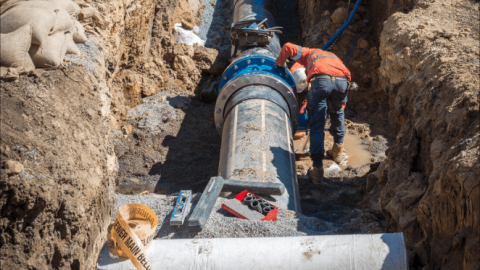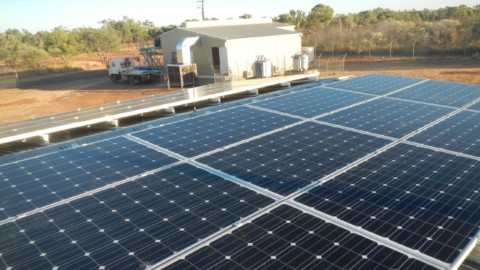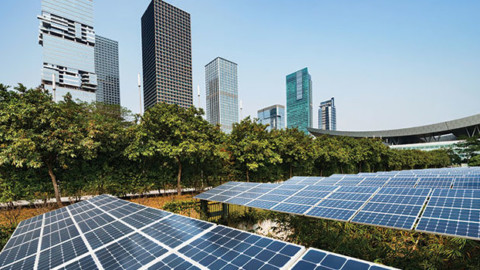Sewage surveillance initiatives are being expanded in Victoria and South Australia to help with early detection of new COVID-19 outbreaks, particularly in communities with no known cases.
Recent testing of sewage samples collected in Apollo Bay has shown viral fragments of SARS-CoV-2, the virus that causes Coronavirus.
The virus was detected in wastewater on Friday 4 September from a sample collected from the influent (entry pipe) to the sewage treatment plant on Tuesday 1 September.
The positive result was also confirmed with an independent test of the same sample collected on 1 September. A further wastewater sample taken on Saturday 5 September was also positive for viral fragments.
The Department of Health and Human Services (DHHS) has stepped up testing in the area with the help of local health services.
Victorian Premier, Daniel Andrews, said, “Knowledge is power when it comes to the fight against Coronavirus – we’ll continue to use all tools we have available to keep communities safe as we take our First Step to COVID Normal.
“Our wastewater testing is just another local partnership to track and trace the virus – and by combining positive results with a testing push we are ensuring communities are COVID-safe.”
Coordinated by Water Research Australia, the Collaboration on Sewage Surveillance of SARS-CoV-2 project (ColoSSoS) brings together health departments, water utilities, laboratories and researchers from Australia and New Zealand to share advances in this rapidly evolving field.
The ColoSSoS project has linkages with similar projects in the US, Canada, Europe and South Africa, as well as via the Global Water Research Coalition.
Gippsland Water is one of the Victorian utilities taking part in the ground-breaking national project.
Managing Director, Sarah Cumming, said the organisation was pleased to be playing an important role in helping to keep Victorian communities safe.
“While the project is in its early stages, testing wastewater may provide an early warning as to where the virus might be present in the community,” Ms Cumming said.
“Ultimately, this may help inform policy makers and health authorities to slow the spread.
“We’re taking weekly samples at our Moe and Warragul Wastewater Treatment Plants, and at the Gippsland Water Factory.
“Samples are then sent to the laboratory to be analysed for the virus and that data is used to inform the Victorian Department of Health and Human Services in its efforts to control the virus.”
Victorian Minister for Health, Jenny Mikakos, said, “Sewage testing has great potential to provide communities with early warning about local cases of Coronavirus – and our water corporations are proud to be joining health research partners and playing a role in the fight against this virus.”
People who have had Coronavirus may shed the virus or virus fragments on used tissues, off their hands and skin when washing, and in their stool.
The virus breaks down and viral fragments enter wastewater through bowls, sinks and drains. Up to 300 samples a week can be taken and tested from across 25 sites across Victoria’s metropolitan and regional sewerage network.
While viral fragments may indicate that people within a community have or have recently had Coronavirus, it can take several weeks for people to shed the virus which is well beyond their infectious period.
Sewage monitoring may become more valuable as an early detection tool as the number of new infections detected through routine testing reduces.
The DHHS will continue to review sewage test results as well as the epidemiology of Coronavirus across Victoria to guide sewage testing locations and the frequency of sampling.
South Australia’s wastewater surveillance testing program has now expanded to include the APY Lands, as part of the State Government’s plan to protect South Australians from the spread of COVID-19.
South Australian Minister for Health and Wellbeing, Stephen Wade, said wastewater sampling had proven to be an effective way to monitor COVID-19 in the community, with South Australia continuing to lead the way in expanding the surveillance.
“Establishing a world-class testing regime in order to immediately trace and contain any spread of COVID-19 has been a key feature of the Marshall Liberal Government’s strong plan to protect South Australians from the pandemic,” Mr Wade said.
“Supplementing our current testing methods with sewage monitoring has the potential to provide us with early warning signs of COVID-19, even before people carrying the virus develop symptoms.
“Testing is also an indicator of increased prevalence in the community, should an outbreak occur.
“The expansion of wastewater testing to include the APY lands will ensure we are actively monitoring a broad range of areas across the state and continuing to take every possible step to get ahead of this virus.”
The Department for Health and Wellbeing Principle Water Quality Adviser, Dr David Cunliffe, said wastewater testing is ongoing and has been successful at SA Water’s Bolivar, Christies Beach, Glenelg, Angaston and Finger Point wastewater treatment plants and in the state’s south-east.
“It is pleasing to see the expansion of the program to include the APY Lands which will allow for further oversight into whether COVID-19 is present in our community,” Mr Cunliffe said.
“We know that the APY Lands have a vulnerable population and the wastewater testing is a non-invasive, early form of detection that will give us the opportunity to implement necessary controls and potentially save lives if an outbreak occurs.
“We would like to acknowledge the Nganampa Health Council for their work in expanding the testing to include their local area and look forward to continuing to work with them to ensure the ongoing safety of their community.”
SA Water Senior Manager Water Expertise and Research, Dr Daniel Hoefel, said the sewage sleuthing’s successful methodology enabled the tool to be swiftly expanded across treatment plants and targeted areas in a wastewater catchment.
“Our expert scientists studying the genetic matrix of COVID-19 have developed a highly-sensitive testing technique capable of being deployed across specific locations, augmenting our state’s ability to detect and manage any potential future outbreaks,” Dr Hoefel said.
“From what we have discovered about the novel Coronavirus, it can present in faecal matter quicker than the time taken for a patient to display symptoms. With our surveillance tool, we’re in an advanced position to pick up the virus before clinical testing.
“We are proud to be working together with SA Health to strengthen South Australia’s response to the pandemic by forging a new line of defence in our detection capacity.”














